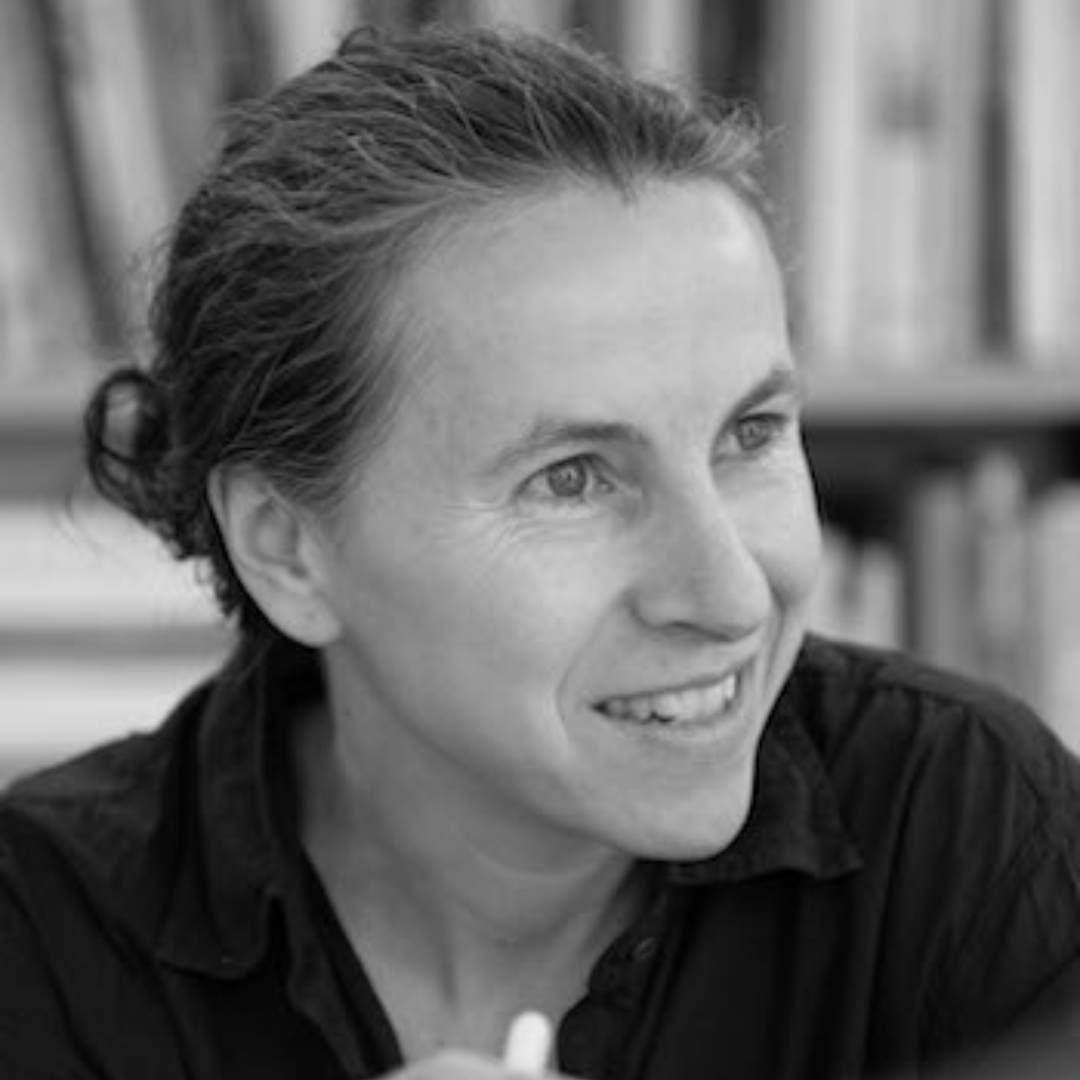Anne Bordeleau

Professor and Director
Anne Bordeleau is the Director of the ASAU. She is an architectural historian and a registered architect in Quebec (OAQ). She was awarded a PhD from the Bartlett School of Graduate Studies (University College London, UK) after receiving her professional degree and Masters in the history and theory of architecture from McGill University (Montreal, Canada). Her publications include writings on the temporal and mnemonic dimensions of materials, drawings, maps, buildings, and architecture more generally. She is the author of Charles Robert Cockerell, Architect in Time: Reflections around Anachronistic Drawings, and co-author of the book and exhibition The Evidence Room, presented at the 15th Venice Biennale, Royal Ontario Museum (Toronto) and Hirshhorn Museum (Washington, DC).
Dr. Bordeleau’s research interests include the epistemology of the architectural project, and multiple dimensions of the relations between architecture and time considered historically, socially, materially, and environmentally. Her teaching, research and practice have moved between different times and places, including nineteenth-century architectural history and theory, the question of the preservation and communication of meaning through architecture, concerns pertaining to rural architecture in contemporary China, as well as historical and theoretical considerations of casting as a practice. She is fundamentally interested in architecture as a cultural and relational act, a commitment that informs her research as much as her approach to education.
In her different roles across multiple organizations in Canada and beyond, she has been looking at the ways in which our education and organizations frame architecture’s role in society more broadly. As Chair of the Canadian Council of University Schools of Architecture (2017-2022), she promoted collaborations across the twelve accredited programs of architecture in Canada, with initiatives that included the Pan-Canadian Lecture Series on Global Perspectives, contributions to the Canadian Architecture Forum on Education, workshops on how work towards justice and equity informs our teaching, research and service, and a collaborative project addressing how accessibility is integrated within architecture schools’ facilities and curricula. In her former role as O’Donovan Director of the School of Architecture of the University of Waterloo (2016-2022), she participated in significant initiatives to support gender balance, Indigenous ways of knowing, racial equity, community engagement and climate justice. She is committed to foregrounding the role architects have in relation to social equity and environmental justice, and she engages architecture as a discipline that carries great potential as well as responsibilities.
Research
- historical and theoretical investigations of the temporal dimensions of architecture considered epistemologically, phenomenologically, socially or environmentally;
- architectural representational practices such as mapping, drawing, building and casting;
- interdisciplinary considerations of architecture as social artefact;
- educational, professional and institutional conceptions of architecture’s role in society;
- and many things “not visible in architecture”: time; social interactions; the spaces in-between buildings; invisibility and voices that might have been silenced; casting as a mode of exploring the past, absence, and the negative; or looking at what lies in the shadow of a city’s monuments.
Practice
Anne Bordeleau is a licensed architect in Quebec. Before moving into academia, she worked on heritage projects and other small design projects and competitions both in Canada and in China. She thinks she might design and build again someday!
Education
PhD in Architecture – Bartlett School of Graduate Studies, University College London
M.Arch II (History and Theory) – McGill University
B.Arch – McGill University
B.Sc.Arch – McGill University
Publications
CAFÉ Capital: Towards Equity in Architecture, Steering Committee Member for the workshops and CAFÉ (Canadian Architectural Forum on Education), in collaboration with Lisa Landrum, Piper Bernbaum, Natalia Escobar Castrillon, Ozayr Saloojee, Catherine Hamel, Jake Chakasim and Vedanda Balbahadur, Azrieli School of Architecture and Urbanism, Carleton University, September 29-October 2nd, 2022.
On Auschwitz and the Evidence Room (pt. 2), podcast, in collaboration with Donald McKay, Architecture Off-Centre, 83minutes, 2022.
“From the GroundUp: Addressing Systemic Racism in Canada’s Architecture Schools“ Canadian Architect, February 2021.
“Urban Monuments in Diverse Cities” in Multi-ethnic Cities of the Mediterranean World 2, Controversial Heritage and Divided Memories, 19th-20th Centuries, ed. M. Folin and H. Porfyriou, London: Routledge, 2020.
The Evidence Room, in collaboration with Donald McKay, Robert Jan van Pelt and a team of Waterloo Architecture students and graduates, at the Hirshhorn Museum, Washington DC, June-September 2019.
“Sculpting with/in Time, Casting is/the Site” in Non-Standard Architectural Production, Between Aesthetic Experience and Social Action, ed. Sandra Karina Löschke, London: Routledge, 2019.
“L’Architecture d’Auschwitz, le droit, et l’art“, co-authored with André Bélanger, Les Cahiers de Droit, vol 58, no. 1-2, mars-juin 2017, pp. 107-36.
“Material Antagonism: Art, Law and Architecture in Santiago Sierra’s work”, co-authored with André Bélanger), Meteriality and Architecture, ed. Sandra Loschke, London: Routledge, 2016, pp. 81-98.
“The Casts Court”, in Anne Bordeleau, Sascha Hastings, Donald McKay and Robert Jan van Pelt, The Evidence Room, Toronto: New Jewish Press, 2016.
Charles Robert Cockerell, Architectin Time: Reflections Around Anachronistic Drawings, Farnham: Ashgate, 2014
“An Indexical approach to architecture”, Footprint 3, Fall 2008, pp. 79-95.